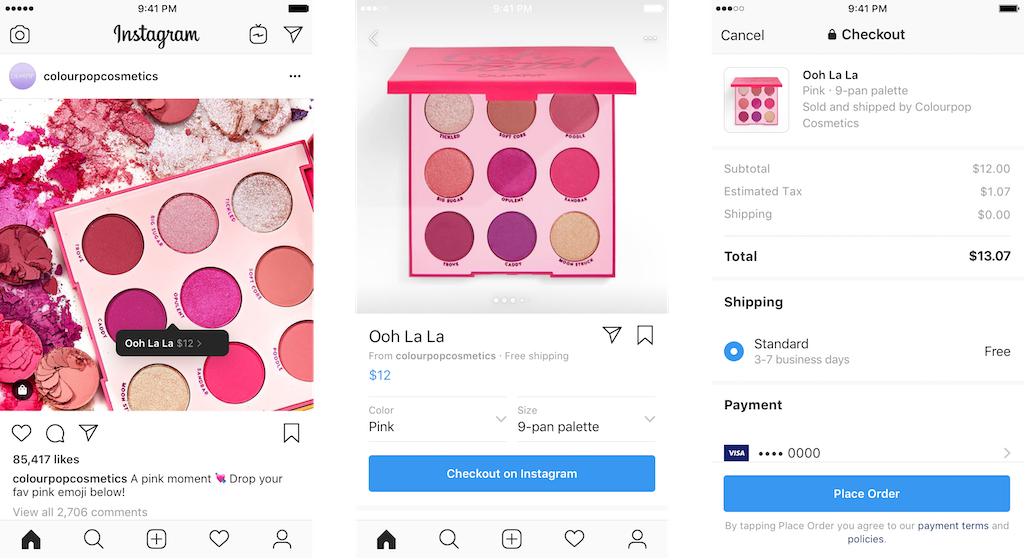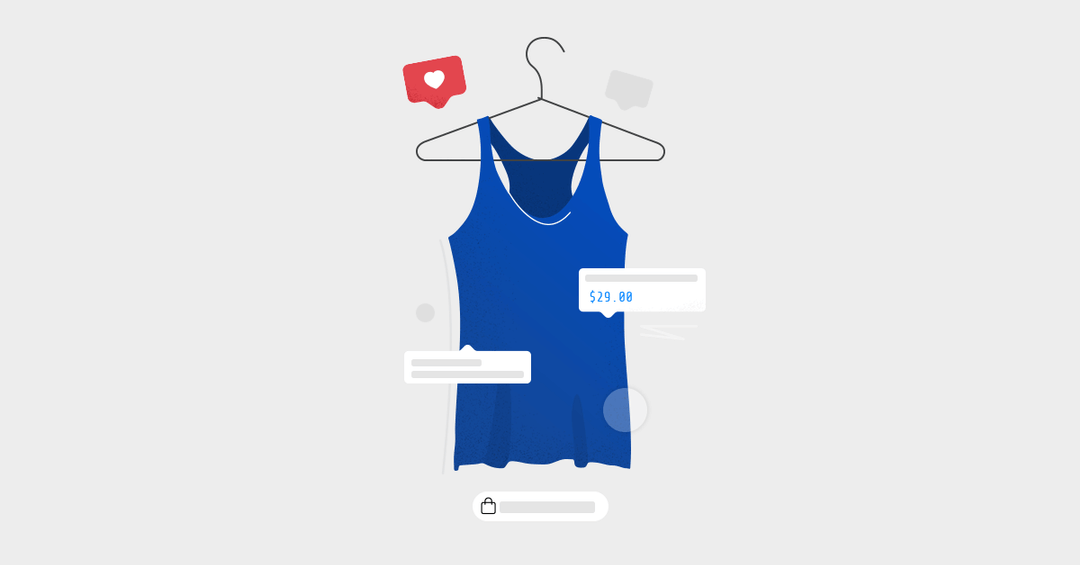Amazon revolutionized the way we buy online… and now Instagram is trying to do the same for social with their recent Shopping announcements, which will soon allow for in-app checkout and Shoppable Creator Tags. These new features will accelerate the social giant's progress toward creating a premiere, influential buying platform for both brands and creators.
Instagram (and the creator economy within it) has become an essential place for brands to drive both brand awareness and direct response sales. And the initial commerce functionalities integrated into the platform have already proven to be an effective way to raise brand awareness -- Instagram Stories made up 39% of all sponsored posts on the platform in Q4 2018.
Instagram Checkout
Checkout is about to make the in-app purchasing process much easier for consumers. Instagram has added billing and shipping info collection directly to the app.

They've also removed all the friction of shopping online for buyers:
- Variations (colors, sizes, etc.) will be available at the start of checkout
- Order status and shipping alerts will go straight to users' notifications
- Once an order is made, a user's preference and private information will be saved, making repeat purchases simple
Shoppable Product Tags on Creator Posts
At 2019's F8, Instagram announced that they will be allowing brands to partner with creators to tag their products on creator posts:
Brands have been able to tag products for a while, but only on their own posts. Product tags will link to feature products from Instagram Checkout-enabled brands, and fans of creators who are so compelled will be able to purchase recommended items without even leaving the app.
The obvious use-case is for creators to curate "looks" and drive traffic to all the partner brands whose products they're showcasing.
A "Closer Score" for Creators?
Insights around Creator Product Tags will be shared with both the creator and the sponsoring brand.
As Creator Product Tags are rolled out to more brands and creators, the idea around what constitutes a "good" creator will likely shift to include that creator's 'propensity to convert.' Brands will be able to marry traditional social performance metrics -- like engagement rate and follower growth -- with the amount of sales that creator has made in past campaigns with similar products.
Because the data will be real and verifiable, direct response influencer marketing for brands within certain CPG niches will at long last become more ROI-focused.
Attribution... On Instagram?
Instagram has traditionally been link shy. Until Instagram Stories, the only way for marketers to drive traffic to their product was with "link in bio." And even after Stories started supporting links for larger creators, shimming made tracking via query parameters (and UTM tags) difficult.
Instagram Checkout and Creator Product Tags not only opens up eCommerce tracking within the platform -- it makes it first-party. That means that it doesn't matter if the purchaser is running an ad blocker or using an incognito window -- sales are attributed to a user, not a nameless session, and so performance data will be exact.
Will Instagram Shopping Work?
While new Instagram Shopping products are a natural extension for brands and creators, many companies have tried to hack social commerce in the past.
Traditionally, social media has been media touch-point that sits higher in the customer funnel. In order for Instagram Shopping to find success, it will not only need to be as feature-rich as competing eCommerce platforms -- it will also need to convince consumers that Instagram is the place to buy.
Brands like Milk Makeup and Daniel Wellington have already proven direct-response influencer marketing can work in distinct niches to the tune of hundreds of millions of dollars.... but are consumers at large compelled to purchase off of Instagram recommendations?
Only time will tell, but our bets are on "yes."

